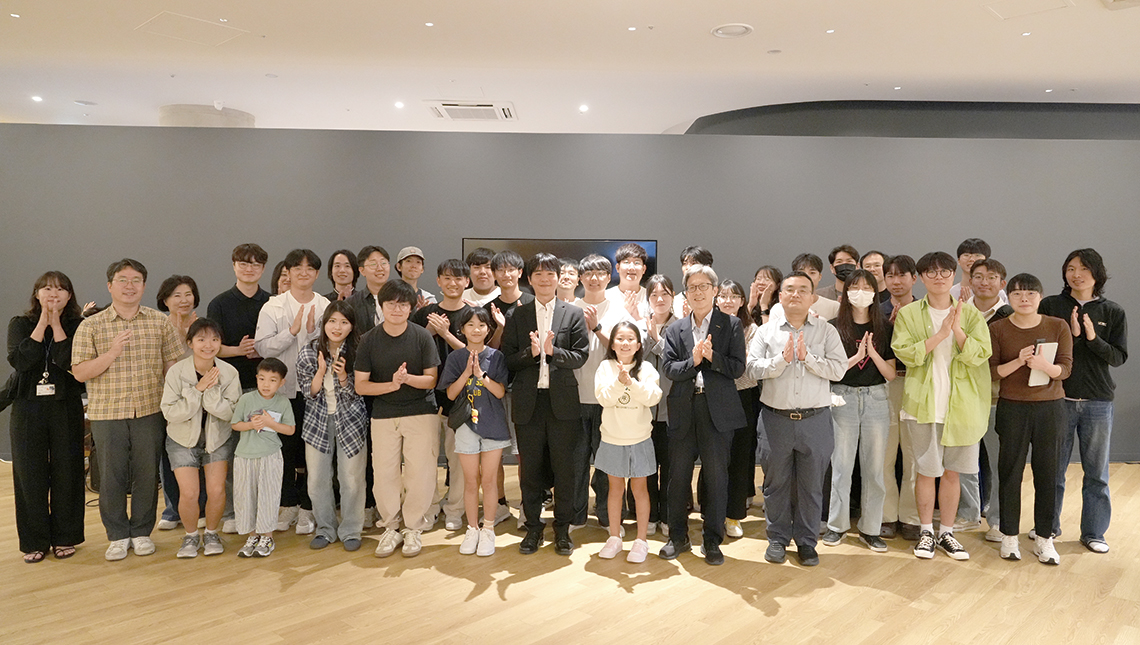
- Together
- Held the “UNIPLEX Special Talk”
Lee Se-dol’s AlphaGo Match Reminiscences
본문영역
Held the “UNIPLEX Special Talk”
Lee Se-dol’s AlphaGo Match Reminiscences
- Written by _ the Editorial Office Photo _ UNIST
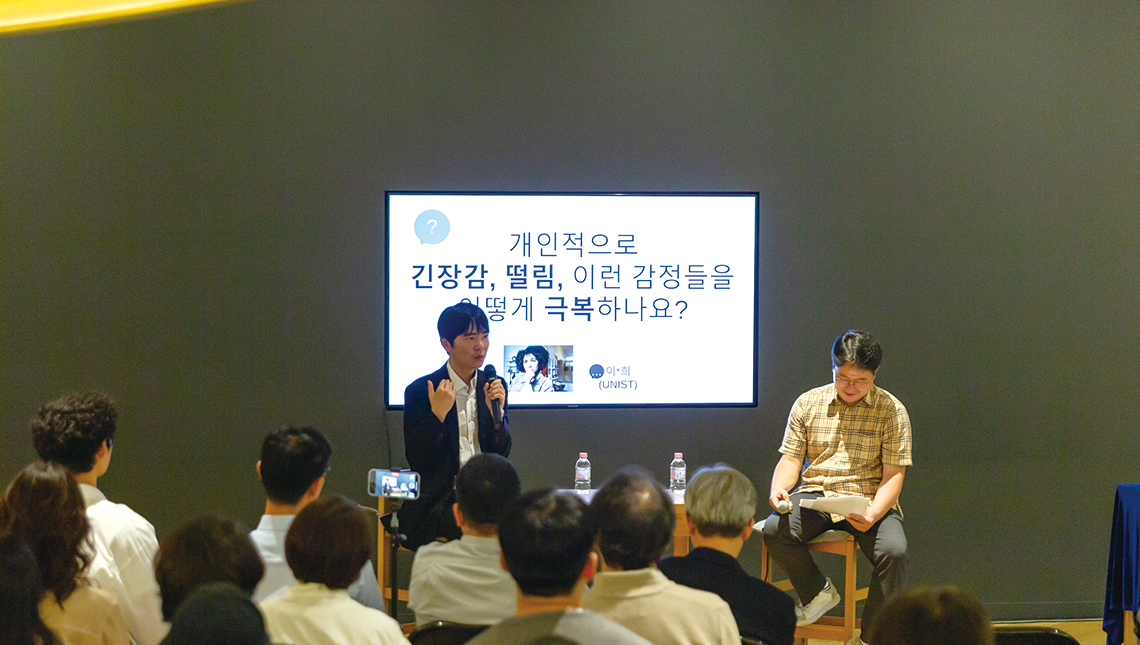
The Battle between AI and Humans: From Chess to Go
Lee Se-dol’s gave a special talk on September 26 at the Academic Information Center’s branch library on the first floor. The purpose of this talk, which was attended by both UNIST members and Ulsan residents, was to examine the future of Go, as well as science and engineering in the age of AI. Professor Yoo Chun-sang gave a talk concert after Professor Kim Jae-up of the Department of Physics moderated the lecture. By giving candid and in-depth answers to questions both beforehand and on the spot, Lee Se-dol engaged the audience. The participants were particularly impressed by his generative AI-based future vision.
Professor Kim Jae-up, who served as the moderator of the day, introduced himself as a “physicist and Go scholar.” He said, “If we want to talk about Go AI, we must look at ‘chess’ first.” He explained, “AI research began to gain traction in the 1980s with the advent of expert systems. The first match between AI and humans was a game of chess.”
Professor Kim says the game was played 20 years ago on February 10, 1996, between Garry Kasparov, the world chess champion, and IBM’s artificial intelligence, “Deep Blue.” Deep Blue emerged victorious in the opening round, but Kasparov ultimately prevailed in six bouts (1 win, 2 draws, 3 defeats).
In May 1997, or a year and a half later, Deep Blue underwent a transformation. With a final score of 3.5:2.5, the enhanced Deep Blue, now known as “Deeper Blue,” defeated humans at the table once more, and won six games. Consequently, AI continues to hold the title of world chess champion.
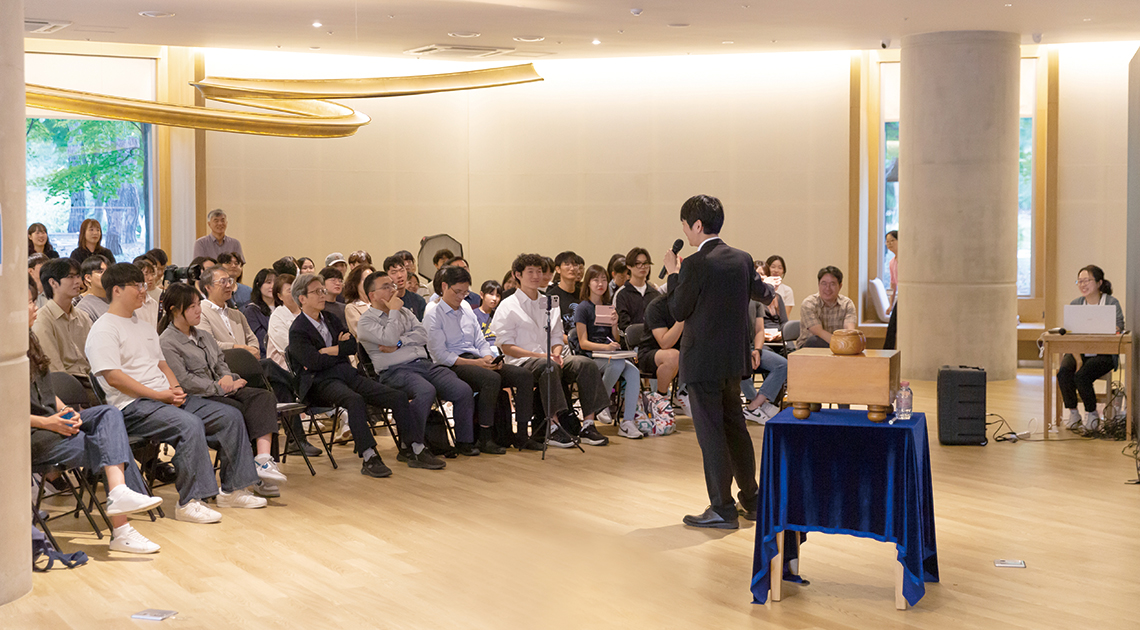
AlphaGo vs. Go: Revisiting the Artistic Meaning of Go
In the world of Go, the last match between humans and AI was held in March 2016. When AlphaGo, a Google DeepMind computer program, defeated Lee Se-dol 4 to 1, it was an opportunity to demonstrate to the world the potential of artificial intelligence. Put another way, AlphaGo’s triumph demonstrated that deep learning technology had more promise than just machine learning. It also spurred conversations about the potential applications of AI across a range of industries.
“I accepted Go as an academic discipline and an art when I was in the fifth grade of elementary school,” Lee Se-dol stated while standing on the UNIST platform in September 2024, eight years later. I believe that I treated a game of Go as though it were a collaborative art piece. I was unprepared for the match against ‘AlphaGo,’ an AI, and the experience and outcomes remain stunning to this day.” But Lee Se-dol underlined, “The significance now lies not in ”playing the game well,“ but in ”the person who created the game,“ which is akin to an art.” In other words, Go is no longer a game to decide the match, but an artistic expression that embodies human creativity and thinking. At the ninth level of Go, he eventually admits that the matchup with AlphaGo eight years prior was not only a validation of technological dominance, but also a chance to validate a new frontier where technology and human-created culture can collide.
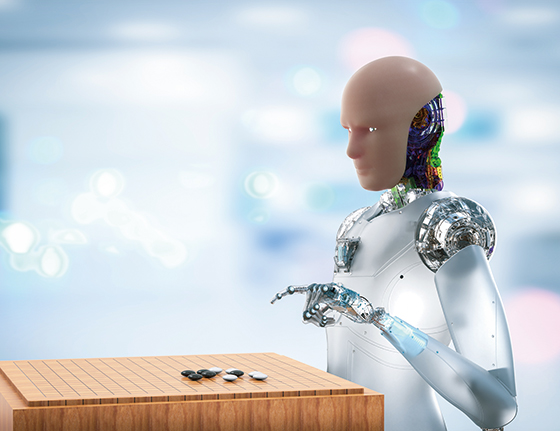
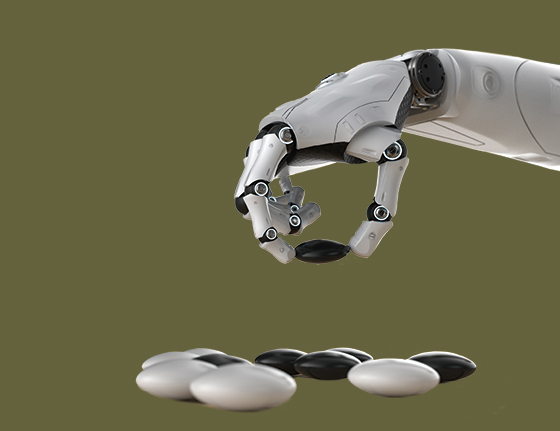
“Stroke of Genius” 4th Match: Flexibility and Creativity Are Key
Beyond merely being a game, the encounter between Lee Se-dol and AlphaGo tested the limits of human intelligence and technological prowess. For many years, the art and game of go has challenged human creativity, inventiveness, and intuition. However, this Go tradition faced a fresh challenge in the encounter with AlphaGo. With deep learning technology that outperformed human intuition, AlphaGo from Google DeepMind won the match 4 to 1, demonstrating that AI is capable of more than just "computation," and can also be creative.
Lee Se-dol responded by stating, “Go is not just a technical battle, but a psychological connection and strategic exchange.” This statement reflected the unfamiliarity he felt during the encounter against AlphaGo. It is claimed that the disparity between human intuition and artificial intelligence’s computation speed was noticed in the first match, where the game was determined in the first few moves. But, in the fourth game, Lee Se-dol defiantly disregarded the rules and prevailed by using a new tactic to target AlphaGo’s vulnerabilities. This demonstrates the continued value of human adaptability and inventiveness in the technological age.
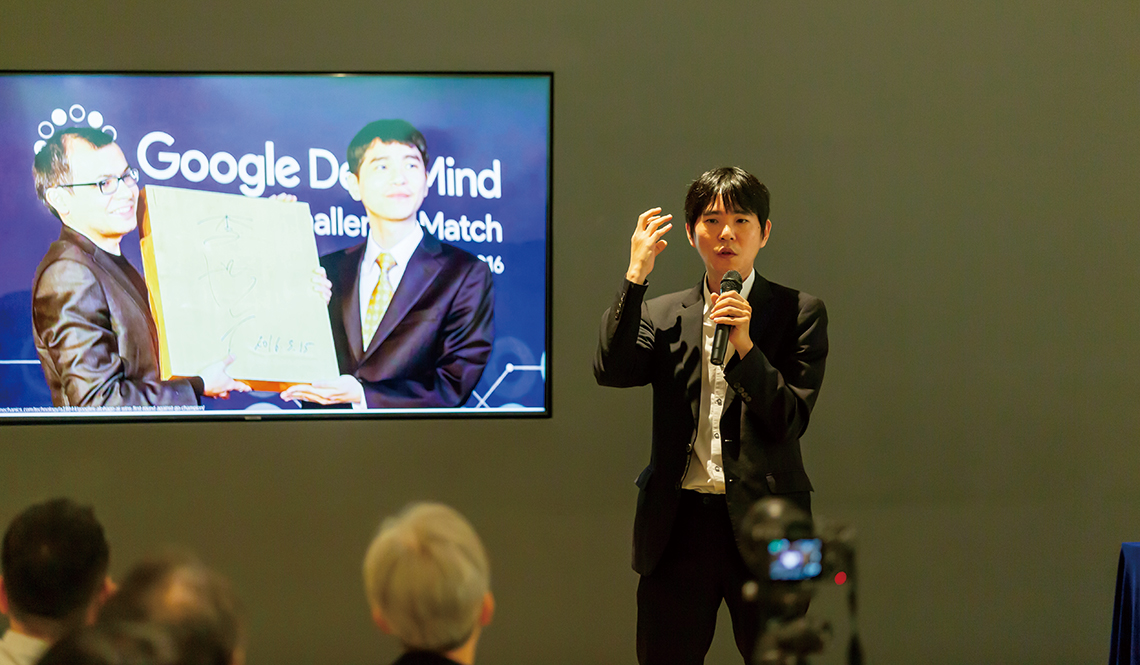
“We Need to Reduce AI Phobia and Find Direction”
In the realm of Go, the match versus AlphaGo was more than just an incident. According to Lee Se-dol, “AI selects the most probable moves based on millions of Go data, but humans do so through their senses and experience,” implying that there is a fundamental difference between the two. According to Lee, this distinction goes beyond simple wins and losses, and prompts consideration of how people in the AI era should accept and interact with technology.
Ultimately, the game turned into a chance to explore how people and AI can work together. The spirit of human challenge is symbolized by Lee Se-dol’s triumph in the fourth game, which raises the prospect of AI evolving alongside humans as a tool.
Lee Se-dol said, “AI is a technology that aims to improve human comfort and wealth. I think we can go a little bit further if you can do a little more, but keep up with the pace since it hurts to fall behind. It seems like we are a latecomer right now, but Korea can rise to prominence after we overcome some of the anxiety surrounding AI, right?”
Following the release of AlphaGo in 2016, people anticipated that AI would advance quickly. However, generative AI like ChatGPT and autonomous driving technologies are not as fully developed as anticipated. In practice, it is only slowly encroaching in society. Conversely, Lee Sedol noted that excessive regulation and fear can become barriers to technology innovation and that excessive fear of AI, when paired with legal and social prudence, is impeding technological advancement. “ Despite being a latecomer to the AI space, Korea can be a leader if it relaxes onerous restrictions and develops its own strategy. Eliminating fear and establishing a Koreanspecific path are crucial.” Lee Se-dol highlighted this repeatedly.
Meanwhile, this lecture was prepared as part of the “UNIPLEX Special Talk” series hosted by the Department of Mechanical Engineering at UNIST, and organized by the Library and Information Team.
